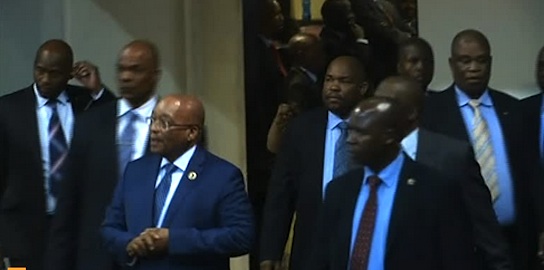
A South African court issued an interim order on Sunday preventing Sudanese President Omar al-Bashir leaving the country, where he was attending an African Union summit, until the judge hears an application calling for his arrest.
Bashir is accused in an International Criminal Court arrest warrant of war crimes and crimes against humanity over atrocities in the Darfur conflict.
Judge Hans Fabricuis said if Bashir was allowed to leave the country it would damage South Africa’s reputation, according to local media. The court hearing is due to resume at 3 p.m. (9.00 a.m. EDT).
The ICC has called on South African authorities to arrest Bashir. A statement issued by the court in The Hague asked Pretoria “to spare no effort in ensuring the execution of the arrest warrants”.
It said the court’s members had “deep concern” about the negative consequences if a member state failed to assist in detaining Bashir, who was indicted more than a decade ago.
But an arrest in South Africa appears unlikely because President Jacob Zuma’s government has given immunity to any leader or delegate attending the AU summit.
“He (Bashir) would be a fool if he had not sought guarantees he would not be transferred before leaving for South Africa,” one ICC official told Reuters, asking not to be named.
A foreign ministry spokesman in South Africa, which is an ICC signatory and therefore obliged to exercise arrest warrants from the Netherlands-based court, did not respond to requests for comment.
REUTERS








